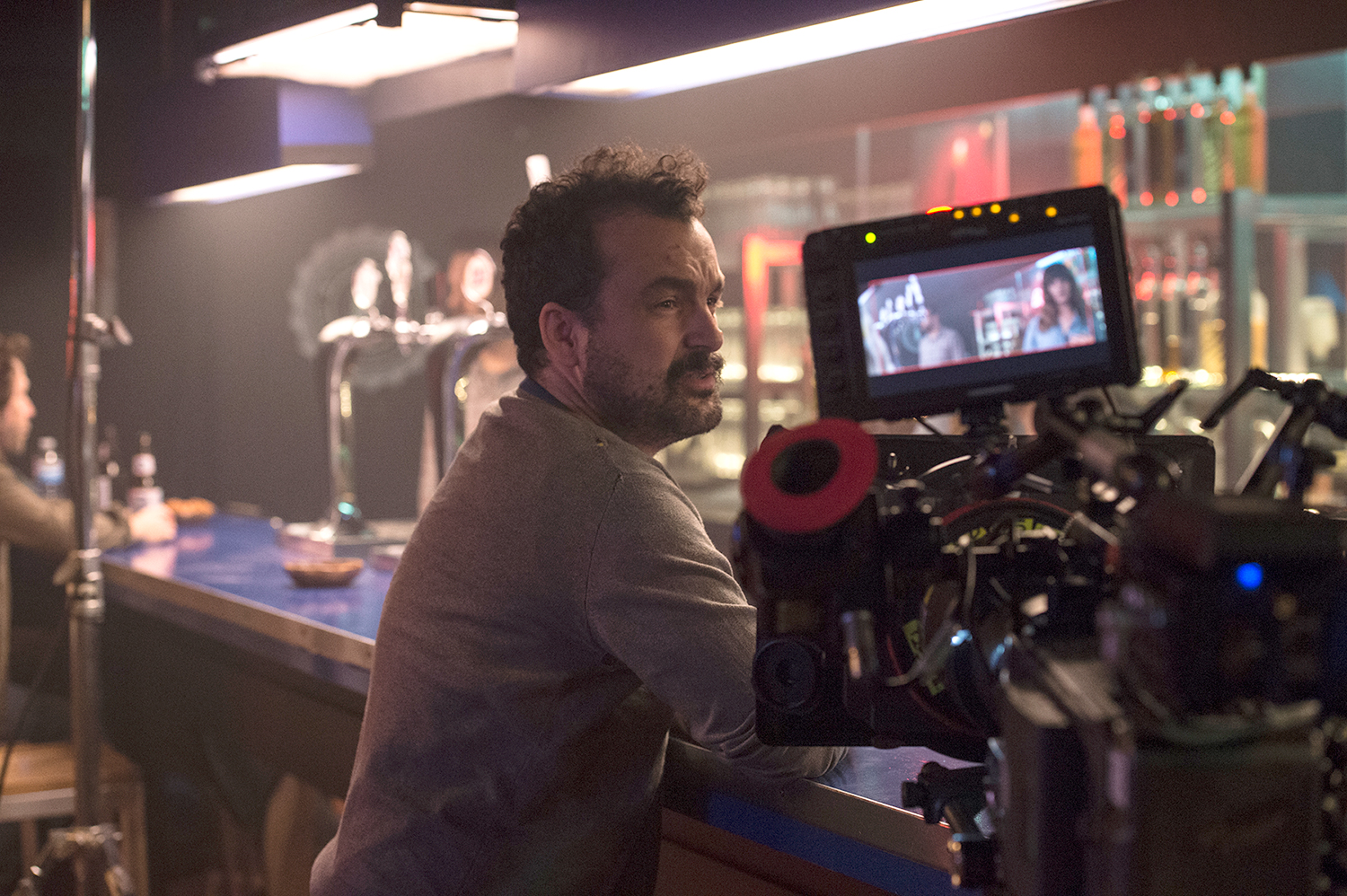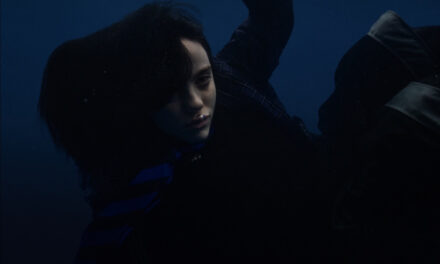[Editor’s Note: The following article contains spoilers for Timecrimes, Extraterrestrial, Open Windows, and Colossal. We strongly recommend seeing these films before reading the below career analysis.]
Science fiction is a genre of infinite possibilities. It allows us the luxury of imagining conditions beyond the strictures of our reality and gives us a potent tool through which to explore philosophical and progressive themes as they relate to our present conditions. However, this exercise isn’t solely limited to the fantastically futuristic or extraterrestrially adventurous. Sometimes science fiction only needs to tweak our reality slightly to make a profound observation, and one only needs to look to the works of Spanish writer-director Nacho Vigalondo to see how one can meld the simplicity of a singular science fiction conceit with the complexity of human society to make something truly insightful.
After nearly a decade of writing and directing a bevy of short films, Vigalondo got his start in features with 2008’s Timecrimes. Following a day in the life of our protagonist, Héctor (Karra Elejalde), stumbles upon a crime scene wherein an unconscious woman is seemingly being assaulted by a masked figure, who in turn proceeds to chase Héctor, presumably to shut him up. Héctor finds a mysterious lab in the woods and hides in a machine operated by a lone scientist (Vigalondo), only to find himself transported through time to hours earlier on the same day.
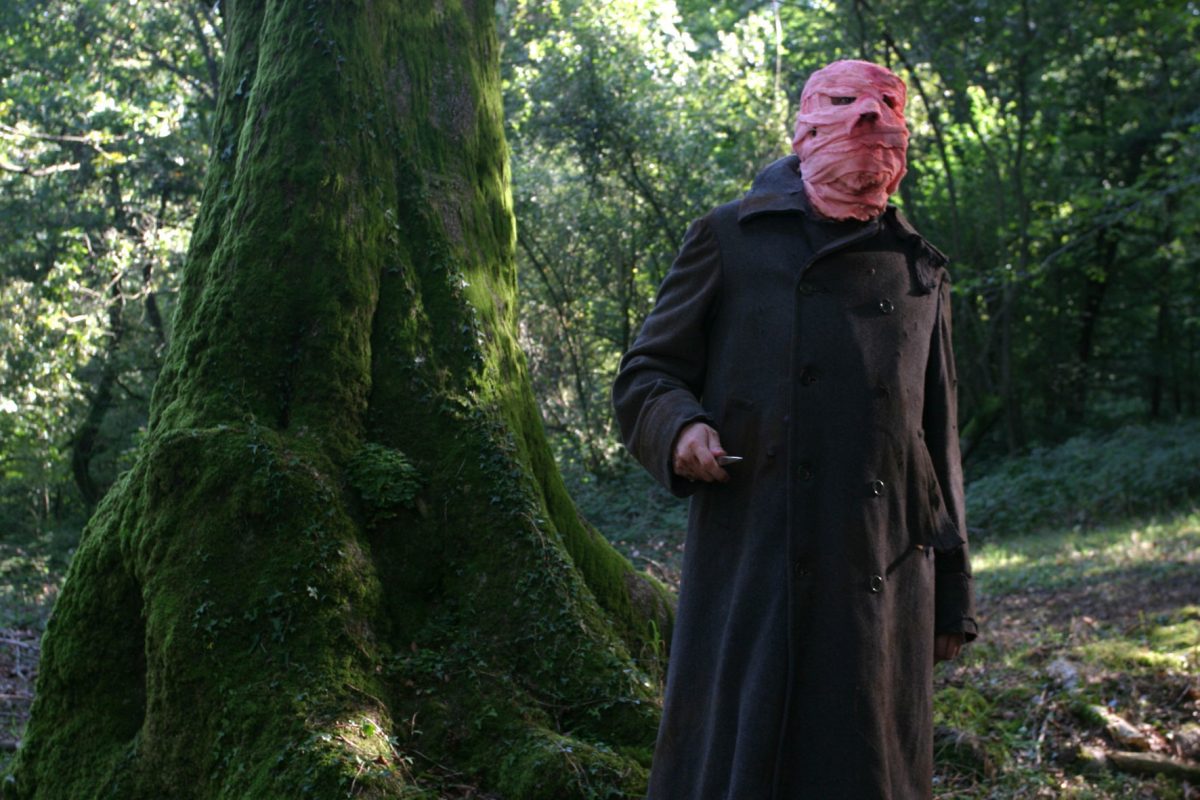
Timecrimes (2008)
Now, despite the scientist’s warnings, Héctor does not keep to himself while there are multiple Héctors running around, and instead, as he ventures out into the world, it becomes clear that his actions were the primary causes of most of that day’s circumstances. The masked figure that originally chased Héctor turns out to be none other than Héctor himself, but as he sets events in motion, the specifically horrendous actions he takes have more of an air of obligation than malice. For example, Héctor only abducts a woman because he recognizes her as the woman unconscious from his original trip through the forest, creating a paradoxical situation in which he feels he must reenact the day as he knows it in order to preserve the timeline. However, he still must choose to take each of these actions, so the line between necessary evils and predestination starts to blur, begging the question of just how far Héctor will go to preserve his timeline. The notion is pushed to extremes by the end, and Vigalondo cleverly leaves the main question hanging, never claiming to know just how much Héctor has compromised his soul during his apparently necessary exploits.
Vigalondo’s second feature, Extraterrestrial, would again marry the fantastical to the grounded, but this time he took a more satirical and socially conscious approach to his commentary. The film opens on Julio (Julián Villagrán) waking up in Julia’s (Michelle Jenner) apartment after a presumed one night stand, only for the pair to discover that the city has been evacuated because a flying saucer has stationed itself over the city. With only Julia’s lovestruck neighbor, Ángel (Carlos Areces), and her live-in boyfriend, Carlos (Raúl Cimas), as company, Julio and Julia must navigate the fact of their hook-up as they bunker up for survival against a potential alien invasion.

Extraterrestrial (2011)
Extraterrestrial is a comedy of errors built around perpetual and compounding lies that Julia and Julio tell Ángel, Carlos, each other, and themselves, and rather unsurprisingly this spirals out of control to the point where they begin to suspect each other of being shapeshifting alien invaders for the lies to start making sense. This lie spreads out to other survivors throughout the city, and what starts as an amusing bottle scenario becomes a treacherously overblown threat to the human race, all because a group of people refuse to honest about their feelings for one another. Vigalondo here deftly points out how intrarelationship dishonesty has impacts on a societal level, despite the perception that such a conflict is limited to the dishonest and deceived parties. Through lies, people cause more harm to themselves than a speculative alien threat.
Vigalondo kept with his trend of exploring social implications of small actions in his first English-language feature, 2014’s Open Windows. Set on a laptop display, the film follows the exploits of Nick Chambers (Elijah Wood), a superfan of actress Jill Goddard (Sasha Grey) who runs a photo fansite in her honor. Believing that he has won a prize to have dinner with Jill following a press event, Nick waits in a hotel room watching a livestream on his computer when his computer is hacked by an unknown source. The mysterious voice gives Nick access to security cameras and Jill’s phone, allowing Nick to take his celebrity stalking to a whole new level. The catch, though, is that the hacker has more planned for Jill Goddard than simply giving Nick some sneaky T&A, and what follows evolves into an elaborate plot to implicate Nick for a greater plot to be perpetrated by the hacker.
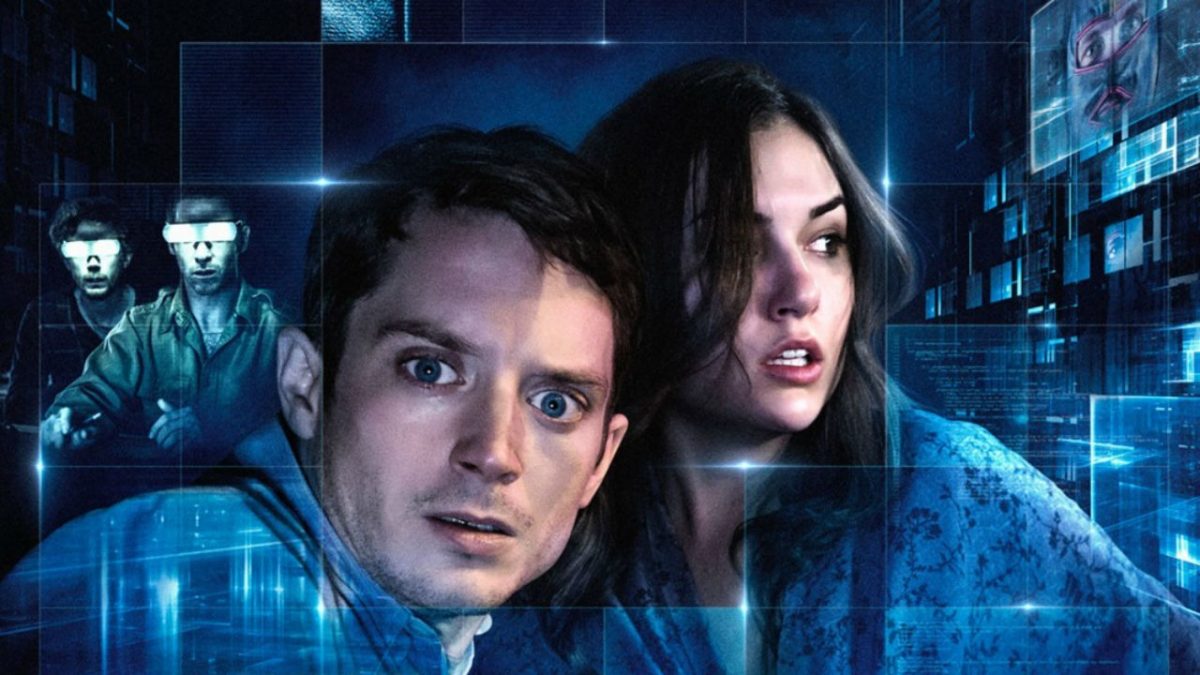
Open Windows (2014)
Save for the absurdly magical properties of the techno-wizardry at the hacker’s disposal, Open Windows is light on science fiction elements in favor of really hammering home the troublesome practice of celebrity worship. One of the film’s biggest twists lies in the hacker’s true identity, not as a renowned criminal, but instead as an even bigger fan than Nick who only wants to keep Jill all to himself, which puts into perspective the amount of danger fame can bring to a person. Even moreso, though, it shines a spotlight on the depths of depravity people will go to feel a sense of possession over their fandom, whether it be the creepy yet relatively benign image collection practices of Nick or the insane domestic fantasies of a man who wants to get too close to a woman he has never actually met. Celebrity culture enables the actions of depraved individuals who wish to possess someone else’s life, and Vigalondo demonstrates as such with a deftly keen eye.
It is this writer’s opinion, however, that Nacho Vigalondo reached the peak of his career thus far with this year’s Colossal. After getting kicked out of her boyfriend’s New York apartment, alcoholic Gloria (Anne Hathaway) moves back to her hometown to try to put her life together. During her time there, however, a giant monster starts ravaging Seoul, South Korea, and Gloria discovers that the monster’s movements correspond exactly to how she stumbles home drunkenly from her friend Oscar’s (Jason Sudeikis) bar in the early morning.
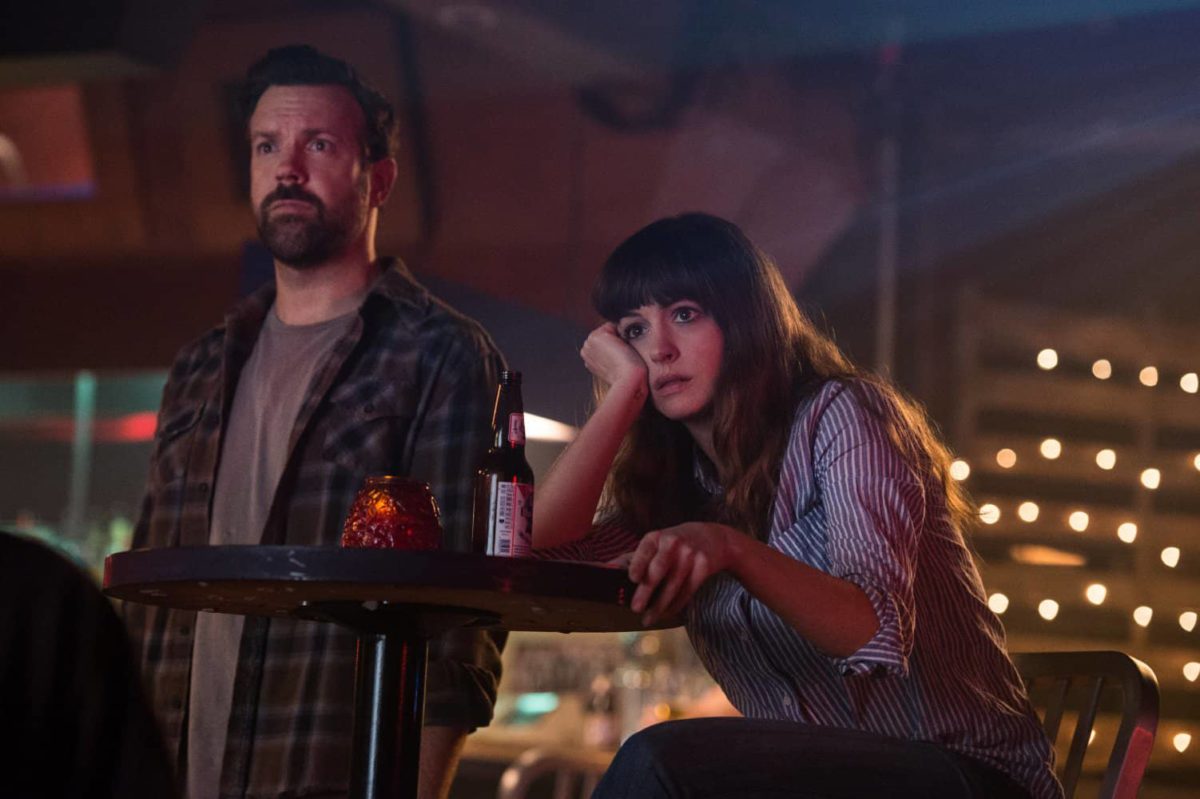
Colossal (2017)
This on its own works as a pretty potent and impactful allegory about how one’s self-destructive, substance-abusing behaviors can be destructive to more than just one’s self, as Gloria is responsible for many Korean deaths during her drunken escapades, despite her sober knowledge of the consequences. Where Colossal shows its brilliance, though, is in analyzing the ways in which Gloria’s alcoholic behavior is enabled, primarily through the abusive persona of Oscar, who discovers his own ability to manifest a giant robot in Seoul during that same timeframe. Oscar is the poster boy for toxic masculinity as expressed through self-pitying impotence, but one doesn’t realize that at first because he exhibits all the signs of being a “nice guy” when he isn’t himself hitting the sauce. This creates a paradigm by which Gloria is a victim of Oscar’s inferiority complex, as he slowly but effectively seizes control of her life by pushing the corrupting influence of alcohol on her and holding the city of Seoul hostage should she choose to leave him. This is not only how substance abuse really brings out the worst in people, but it is also how abusers perpetuate their abuse in ways so that their victims’ behavior resembles addiction and dependence. It’s a striking observation realized through one of the most creative premises to be put to film in years.
Nacho Vigalondo is a master of psychosocial analysis through high concept science fiction, whether he’s using time travel to deconstruct the fallacies of necessary evils or using city-destroying kaiju to pick apart the intricacies of domestic abuse. While much of science fiction is focused on using the surreal to draw parallels to reality, Vigalondo infuses reality with the surreal to shine a light on reality’s issues. He is a visionary and revelatory auteur who will surely only rise higher from here, conceiving stranger ways to show us the horrors of the benign reality we take for granted.

